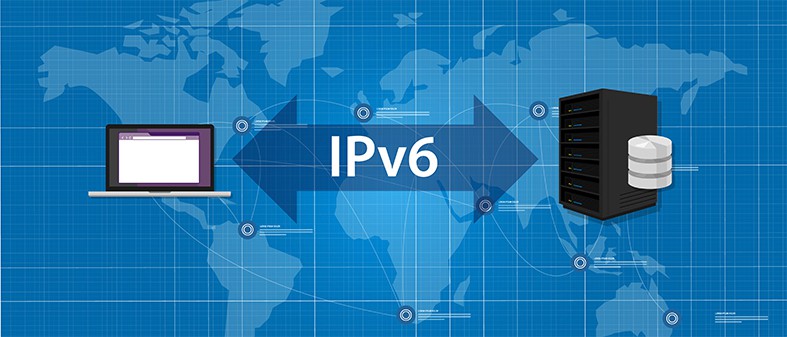When the ~4.3 billion addresses provided by IPv4 began to head towards exhaustion, it became pertinent to launch an upgrade. Hence, the launch of IPv6, which uses 128-bit hexadecimal notations to provide an infinite number of addresses.
But beyond being able to transition IPv4 traffic for IPv6 servers, IPv6 proxies have other use cases. This article will examine these uses and how IPv6 proxies stack against IPv4 proxies.

Table of Contents
What are IPv6 Proxies?
An IPv6 proxy is software or hardware using IPv6 addresses to serve as an intermediary between the users’ network traffic and destination servers. They can also filter traffic based on integrity to ensure the security of the systems they are deployed on.

IPv6 proxies are more advanced and versatile than IPv4 proxies, which makes the former easy to work with. The versatility implied by IPv6 proxies is that they can translate IPv4 IP addresses to IPv6 formats, which IPv4 proxies can’t do.
It’s easy to confuse IPv6 proxies with IPv6 gateways because they both support IPv4 and IPv6. However, they are different. IPv6 proxies work to conceal the original IP address of its user. They can also work as a traffic filter for servers looking to enhance security.
This is important:
On the other hand, IPv6 gateways are doors that define the configurations, network edges, and protocols in use. Gateways translate IPv4 to IPv6 and aid information routing, but they don’t filter traffic.Comparing IPv4 Proxies and IPv6 Proxies
Usually, proxy providers offer both IPv4 and IPv6 proxies. Each has its strengths and downsides, which you should understand before deciding which proxy to choose.

First, IPv4 proxies are exclusive to 32-bit IPv4 addresses, while IPv6 proxies can work with both standards. You must get your proxy strategy right to make the translation work.
Despite the improvements that IPv6 offers, IPv4 addresses remain the most common. So, even if you get an IPv6 proxy, the major work it would do is IPv4-IPv6 translation. Sometimes, this translation can be slow and buggy.
Note:
However, reputable providers guarantee the translation to be quick. With IPv6 proxies, you can also enjoy some vital use cases IPv4 proxies can’t offer. Click to find out more about IPv6 proxies from Oxylabs.Use Cases of IPv6 Proxies
IPv6 proxies have varying use cases, which make them suitable for a spectrum of users. Whether you need one for personal usage or business, you’ll get value for your money with IPv6 proxies.
SEO Purposes
IPv6 proxies are great for solving your search engine optimization needs. For instance, you can use them to manage your social media accounts. With IPv6 proxies, you can efficiently execute Search Engine Results Page (SERP) tracking and perform extensive SEO scraping.

The high performance of the IPv6 proxies makes it a highly invaluable SEO scraping asset, as it would easily switch between different projects. IPv6 proxies can efficiently re-route and translate any traffic it wants, thereby gaining access to any server of choice. Hence, there’s almost no limit to the amount of data you can harvest.
Also, your SEO scraping activities on IPv6 proxies wouldn’t disturb SERP tracking, amongst other projects you may be running simultaneously.
Pro Tip:
So, if you need to multitask heavily in growing your online marketing, IPv6 proxies are your best bet.Security and Privacy
IPv6 has an in-built IPsec feature that enhances the security of the protocol. The security capabilities of IPv6 can also be maximized by using other safety measures that easily integrate with the advanced protocol. The proxy also hides your identity better, as it has a potentially unlimited pool of IP addresses to protect your online activity. In addition, IPv6 uses Secure Neighbor Discovery (SeND) to create encrypted connections that facilitate data security.
Scaling Operations
When you need to scale online personal or business operations, IPv6 proxies provide better infrastructure. For instance, if you need to use a large pool of IP addresses, IPv6 makes that possible. Furthermore, because the protocol is designed to be efficient, you can perform large-volume operations faster than you would with IPv4 proxies.
Unlimited Access
With an IPv6 proxy, users can gain access to any website or server, irrespective of the destination’s internet protocol. Thanks to the translation capabilities of IPv6 proxies, you can easily bypass bans, restrictions, blockings, and other types of censorship. You can also access geo-specific content across the internet because the proxy approaches the destination website with its IP address and location details.
Conclusion
IPv6 proxies are high-performance devices and software that can improve users’ internet experience. Even though a more significant percentage of the internet still uses IPv4, the ability to translate IPv4 to IPv6 makes IPv6 proxies highly sought after. Not only do these proxies work well with protocol standards of the past, but they are also future-proof. Hence, they’ll maintain relevance long into the future.

